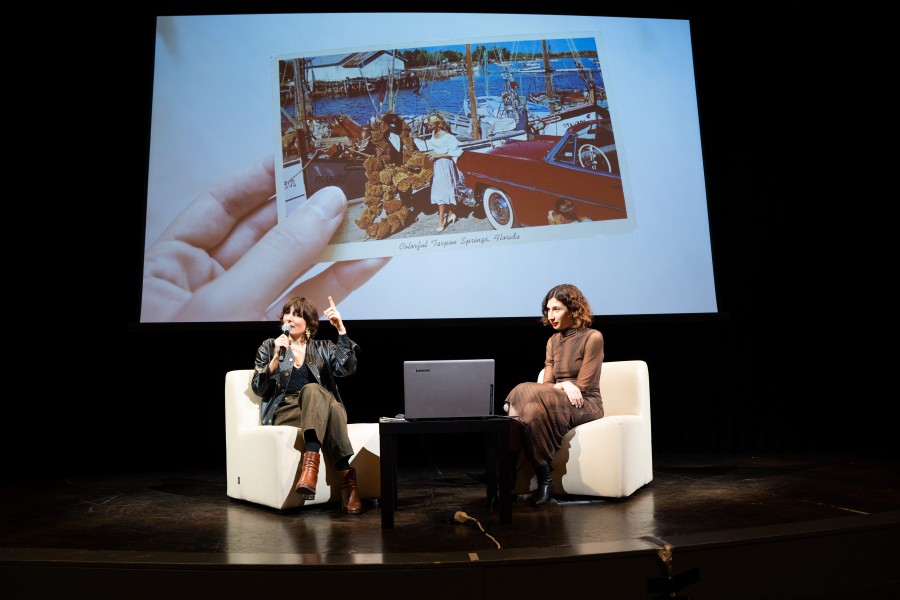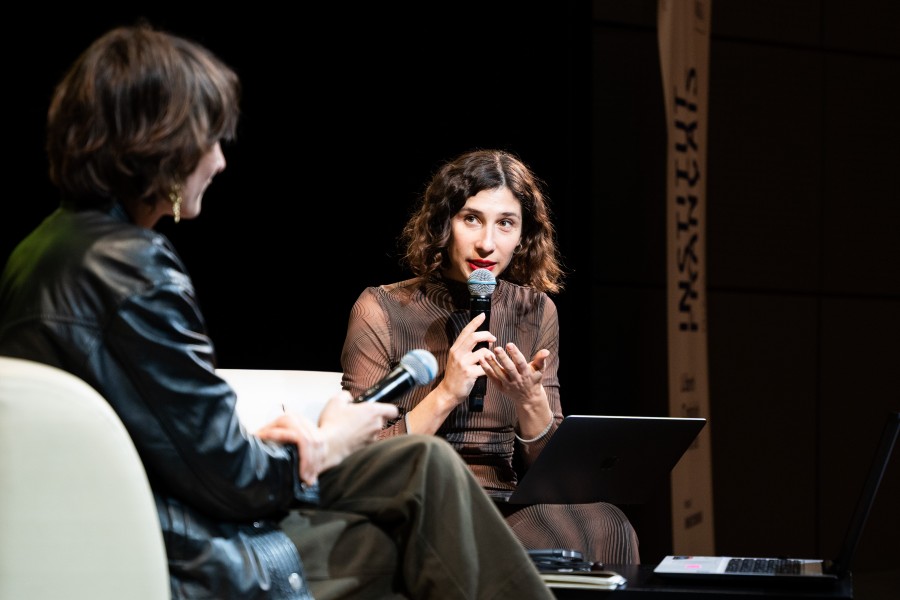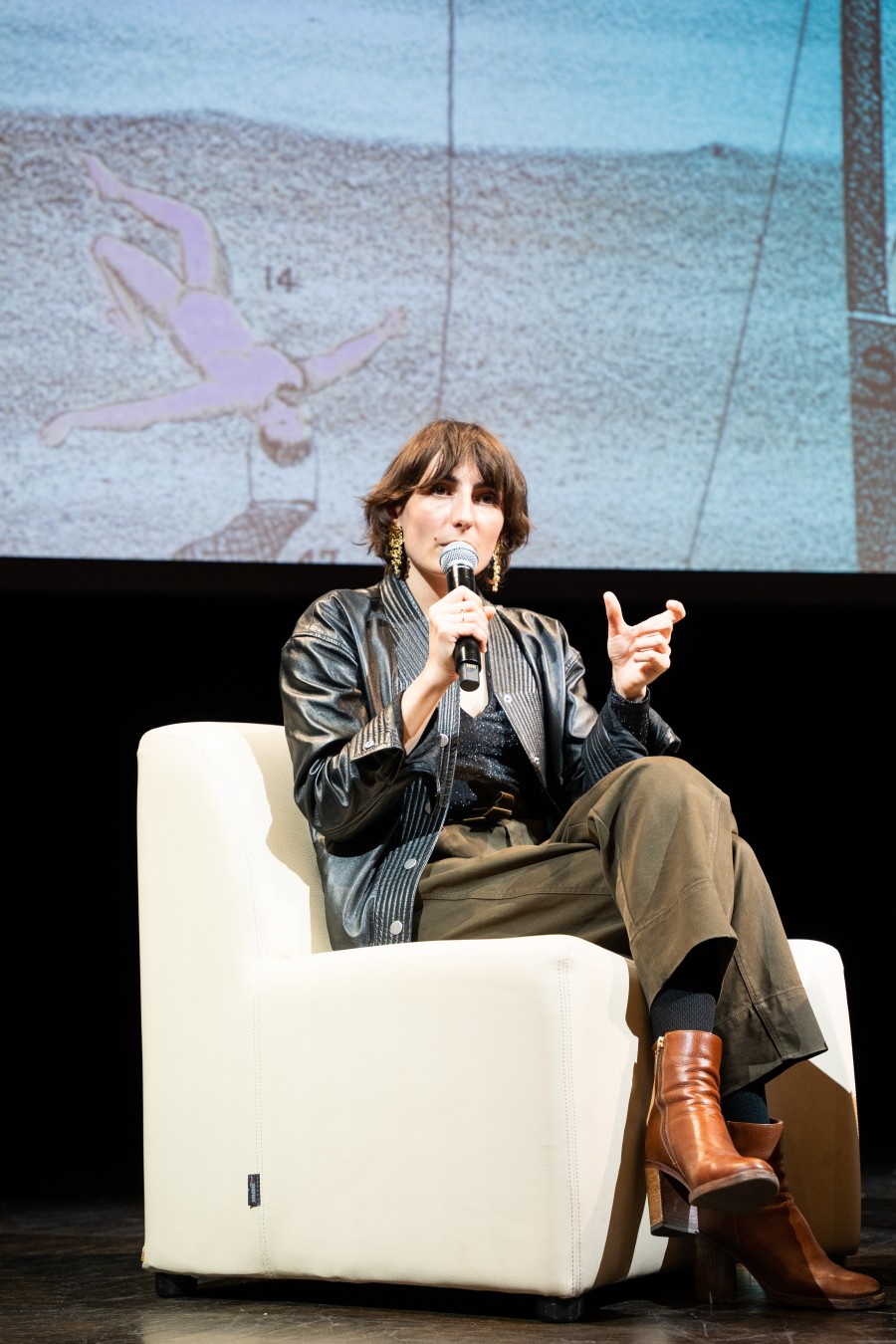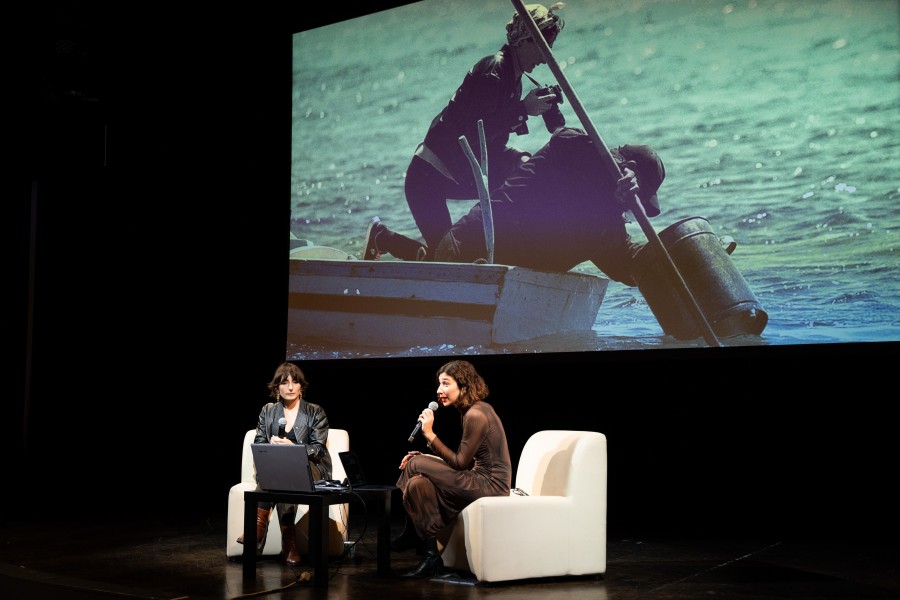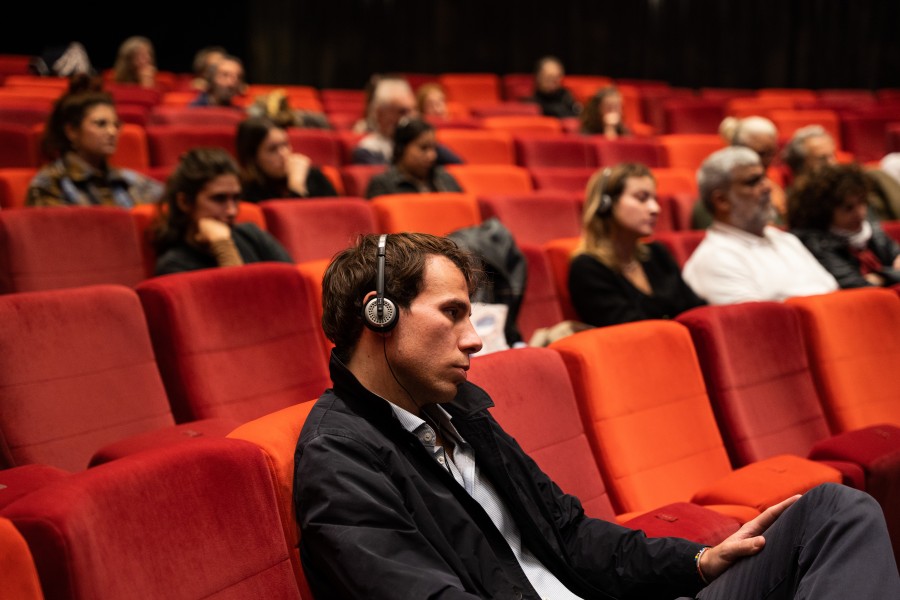Nov 10 2023
Photography: Alexandra Masmanidi
ATOPOS cvc is glad to announce the continuation of “The Office of Hydrocommons International Artist Residency” in November – December 2023 with the participation of the artist Camille Pradon and her cross-disciplinary project “Sol absolu Ͱ ”, investigating the story of sponges and sponge divers communities through the Mediterranean. Her research and previous works will be shared with the public on December 4, 2023 at the Institut français de Grèce – IFG, Auditorium Theo Angelopoulos at 7 p.m in conversation with the curator Eleni Riga. Stay tuned for more information!
Sol absolu Ͱ (Hêta) is a cross-disciplinary project investigating the story of Greek sponge divers who discovered lost artwork in a shipwreck at the beginning of last century. Engulfed off the Tunisian coast for 2,000 years, it carried a collection of stolen Greek marbles and bronzes and is one of the first testimonies of art trafficking in the Mediterranean Sea.
Following Metaphora, prelude, her last solo exhibition dedicated to the storm which drawn the ship through the depths of the sea, Sol absolu Ͱ (Hêta) emerges as an invitation to consider and explore the narratives of those who held their breath for millennia to harvest this precious resource. For Ͱ (Hêta), she focuses on a set of notions such as surface and depths, absorption and poros (πόρος : communication channel – seabed), mooring and harvesting. Pradon connects the flow of water with the circulation of languages, and the coexistence of living beings with a potential hybridization.
The sponge has been at the heart of the sponge diving communities since Antiquity, enlightening our knowledge of the relationships between humankind and the living systems from the surface to the seabed. Sponge diving brought several communities together that crossed the Mediterranean Sea to harvest, trade and often settle. This meeting of cultures created a ground in which many languages were exchanged through activities such as fishing, maritime piracy and diplomatic relations, contributing to form Lingua Franca, a combination of the many dialects and languages spoken throughout the basin.
Harvested for a large variety of uses such as medical and personal care or by the cosmetics and printing industries during the 19th Century, sponges are currently catching the eye of scientists, being a precise environmental change’s biomarker, and to the pharmaceutical industry for their medicinal properties. Sponge creatures are today at the brink of extinction due to industrial harvesting and epizootic disease waves, which wiped out large quantities of their population in the Mediterranean Sea, specifically in Greece. At the beginning of the 20th century, thousands of Greek fishermen migrated to practice sponge diving in Tarpon Springs, Florida.
During her residency, Pradon will continue her in-depth research on the concepts of displacement and fragmentary narratives centered around the sponge divers in Greece. Previously, she has worked in Sfax, Kerkennah Archipelago, Mahdia and Tunis (Tunisia) while she is invited in Marseille (France), to closely examine the data collected by the scientists of IMBE and to accompany them during a one-week field campaign in the Spring 2024.
The event “Sol absolu, traversées sensibles” is supported by the Institut français de Grèce – IFG.
About Camille Pradon:
Camille Pradon is a French visual artist, born in 1993.
Using the image as a sensitive material, she conducts in-depth research on the concepts of displacement and fragmentary narratives. From video, installation, photography to drawing and ceramics, Camille Pradon fosters a formal language that plays on the porosity between mediums.
Her work is regularly exhibited in France and abroad, including at the Manchester Museum of Natural History (UK), Cité internationale des arts and Villa Belleville (Paris), Lyon Contemporary Art Biennale, the Gabes Cinema Fen Festival (Tunisia) and by the Wallonie-
Bruxelles Centre (Paris). Her essays are part of various art publications including Le Magazine du Jeu de Paume and Point Contemporain.
Camille Pradon graduated from the Higher School of Art and Design of Saint-Étienne in 2015, and studied at the Accademia di Belle Arti di Bologna, Italy.
In 2020 and 2021, she held a residency at the Cité internationale des arts de Paris, the Villa Salammbô – French Cultural Institute of Tunisia and the Nouveau Grand Tour Residency Program – French Cultural Institute Italia. She lives and works between France and Tunisia and is currently represented by lilia ben salah Gallery, Paris.
More about the artist: https://en.camille-pradon.com/
Artist Residency Program:
Previously, The Office of Hydrocommons has hosted three international artists Maëlle Gross, Lily Consuelo Saporta Tagiuri, Kasia Wojcik in order to explore issues of environmental and social change in relation to water and the body.
Maëlle Gross, a Swiss visual artist of Greek descent, who explores issues of ecology and mythology through feminist science fiction and spirituality focused on caves in Greece. In the spirit of care, the Office of Hydrocommons partnered with the organization Pro Helvetia, so that Gross could be accompanied by her daughter and partner, thus ensuring space and time to expand her research.
Lily Consuelo Saporta Tagiuri collaborated with the Greek botanist, agronomist, and food technologist Manos Bazanis in a research into native edible plants such as Crithmum maritimum (crimson), Hymenonema graecum (andralida), Elytrigia sartorii (Aegean sand couch grass), Origanum microphyllum (antonaida), and Brassica nigra (wild cabbage), which grow in water- deficient environments, and are affected by salinity. Around the garden they developed at ATOPOS cvc, they hosted a series of events on foraging where the participants had the chance to taste these plants and learn to identify them.
In collaboration with the Avtonomi Akadimia, and in the context of ecofeminist struggles, the Office of Hydrocommons has hosted Kasia Wojcik focusing on issues of immigration and commons. Wojcik in collaboration with Avtonomi Akadimia, Eleni Tsamadia, Amazigh Labidi and George Anagnosotopoulos, led a public assembly on creating a nomadic constitution. At first glance, the idea of a nomadic constitution seems to be a contradiction in terms. Constitutions are commonly referred to as a privileged object of nation-states. Nothing is thus more alien to traditional constitutionalism than the idea of a normative instrument that integrates and recognizes the political aspirations of undocumented groups of people.
#TheOfficeOfHydrocommons is an interdisciplinary and interartistic program that focuses on climate and social change in relation to water and the body. It is actualized following an invitation by the ATOPOS cvc artistic director Vassilis Zidianakis to the independent curator Eleni Riga primarily in the context of#OccupyAtopos. The collaboration continues in the context of Atopos Unbound.
See also:
- Mar 22 - Jul 01 2023 #OccupyAtopos #EleniRiga #TheOfficeOfHydrocommons
- Μαρ 20 - Ιουλ 01 2023 #TheOfficeOfHydrocommons / Events
- 2023 #TheOfficeOfHydrocommons #WetHeart Exhibition

